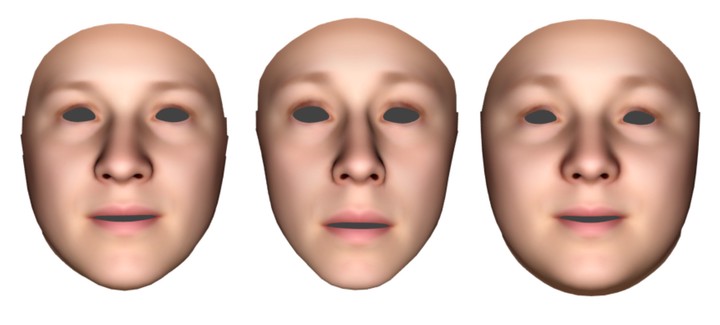Symmetric or not? A holistic approach to the measurement of fluctuating asymmetry from facial photographs.

Abstract
Previous studies investigated the relationship between facial asymmetry, perceived attractiveness and peoples’ traits. The diversity of results might be due to methodological issues and poor standardization between asymmetry scoring methods. We evaluate two traditional scoring methods, the Horizontal Angular Asymmetry (HAA) and the Horizontal Fluctuating Asymmetry (HFA), and propose a geometric morphometrics-based Holistic Facial Asymmetry Score (HFAS). In Study 1, 1000 photographs with different types of asymmetry were simulated and then correlated with the estimated facial asymmetry scores. Results indicate that HFA was highly affected by extrinsic factors, while HAA and HFAS were less affected and rather capture intrinsic asymmetry. In Study 2, HFAS and HAA were compared for 160 facial images (45% Female, M = 27.6 years) by estimating their correlations with ratings of attractiveness and targets’ traits provided by 81 adults (51% Female, M = 27.7 years). Results suggest that attractiveness was only related with extrinsic factors. HAA was related with higher fairness, femininity, modesty, and sincerity, but less greediness and masculinity. HFAS was related with low femininity, high masculinity, and greediness, as well as low negativity, higher fairness, and sincerity. We discuss the benefits of HFAS as a scoring method for the assessment of facial asymmetry.
Links to all co-authors: